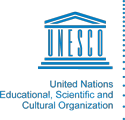New School Health and Nutrition Webinar series
FRESH partners and colleagues from across the school health and nutrition community have come together to launch a new monthly School Health and Nutrition (SHN) Webinar series. The SHN webinar series will provide monthly presentations by leading policy makers, researchers and implementators engaged in improving the health and education of children in low and middle income countries.












